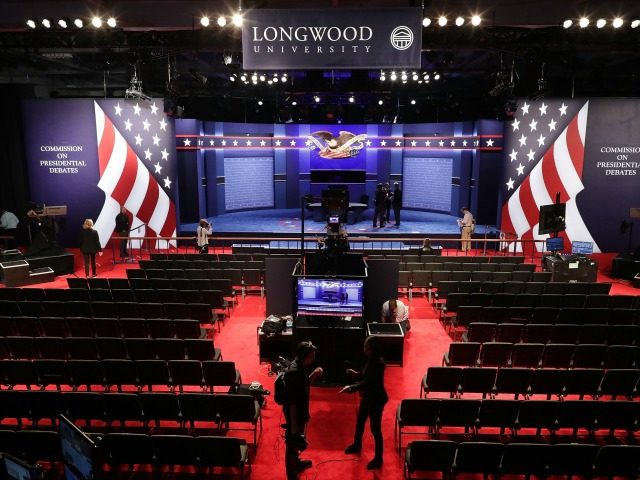Gov. Mike Pence and Sen. Tim Kaine are set to participate in their sole vice presidential debate of this unpredictable campaign season.
All eyes will be on the picks of Donald Trump and Hillary Clinton to inform the citizenry of their plans to deal with the problems facing the country. Many people may wish the tickets of both parties could be flipped, to allow these men to be featured at the top. Regardless, the country is hoping to hear a substantial debate rather than political mudslinging tonight.
With a campaign as volatile as this one, no one’s holding their breath.
Over the course of what has seemed like a very long campaign season, we’ve heard about Hillary Clinton’s supposed body doubles, Donald Trump’s nether-regions, and – somehow – Rosie O’Donnell. But during a recent Simulated Convention of States, when leaders from all fifty states traveled to Colonial Williamsburg to identify the biggest problems facing our country, we heard common sense proposals that real Americans care about.
In preparation for the vice presidential candidates, here’s a list of what they should prioritize in their discussion tonight. Below are the six proposed amendments at the Simulated Convention that would balance the power between the federal government and the states. If enacted, these amendments would signal a turning point in our nation’s history by putting Washington in check and restoring liberty back to the individual.
- Require states to approve any increase in the national debt
Raising the public debt would require two-thirds of each house of Congress, and only for a period not to exceed one year. Neither Congress nor the president could compel or coerce any state to appropriate money.
- No more income tax and repeal of the 16th Amendment
Congress could no longer impose taxes or other exactions on income, gifts, or estates without the approval of three-fifths of the House of Representatives and three-fifths of the Senate, and would separately present the proposal to the president. Five years from the date of its ratification, the 16th Amendment would be repealed.
- Limit federal overreach by returning the Commerce Clause to its original meaning
Congress would no longer be able to regulate commerce beyond the sale, shipment, transportation or other movement of goods, articles, or persons. It could not regulate activity solely because it affects commerce among the several states.
- Federal regulations limited through congressional override
State legislatures would have the power, by a three-fifths majority, to override any provision of federal law, whether issued by Congress, the president, or any other administrative agency. Any rule, decree, statute, order, regulation, opinion, or decision that has been abrogated through this article cannot be reinstated for a period of six years.
- Power to veto an executive action by the president
In order for an executive action by the president to be overturned, one quarter of the members of Congress or the Senate would submit a written declaration of opposition. Then a vote to adopt the president’s proposal would have to take place and win a majority vote. If Congress fails to vote within 180 days, the regulation would be vacated. However, no executive order could go into effect without the approval of Congress. Congresses approval or rejection of a rule or regulation would not be subject to presidential veto.
- Term limits, term limits, term limits
No member of Congress could serve more that six full terms and no Senator could be elected past two full terms. These term limits are retroactive and would include the service prior to the article’s enactment.
So when you pop the popcorn tonight and tune into the debate, see how many of these issues are discussed. If none are, then you’ll know it’s time to officially retire your faith in politicians, once and for all.
Perhaps this campaign cycle has already driven you to that point. Good! A Convention of States is the only way to effectively limit a federal government that has grown too big to voluntarily restrict itself. It’s time for all of the states to join Alabama, Alaska, Florida, Georgia, Indiana, Louisiana, Oklahoma, and Tennessee in taking back the reins from the federal government.
Mark Meckler is president of Citizens for Self-

COMMENTS
Please let us know if you're having issues with commenting.